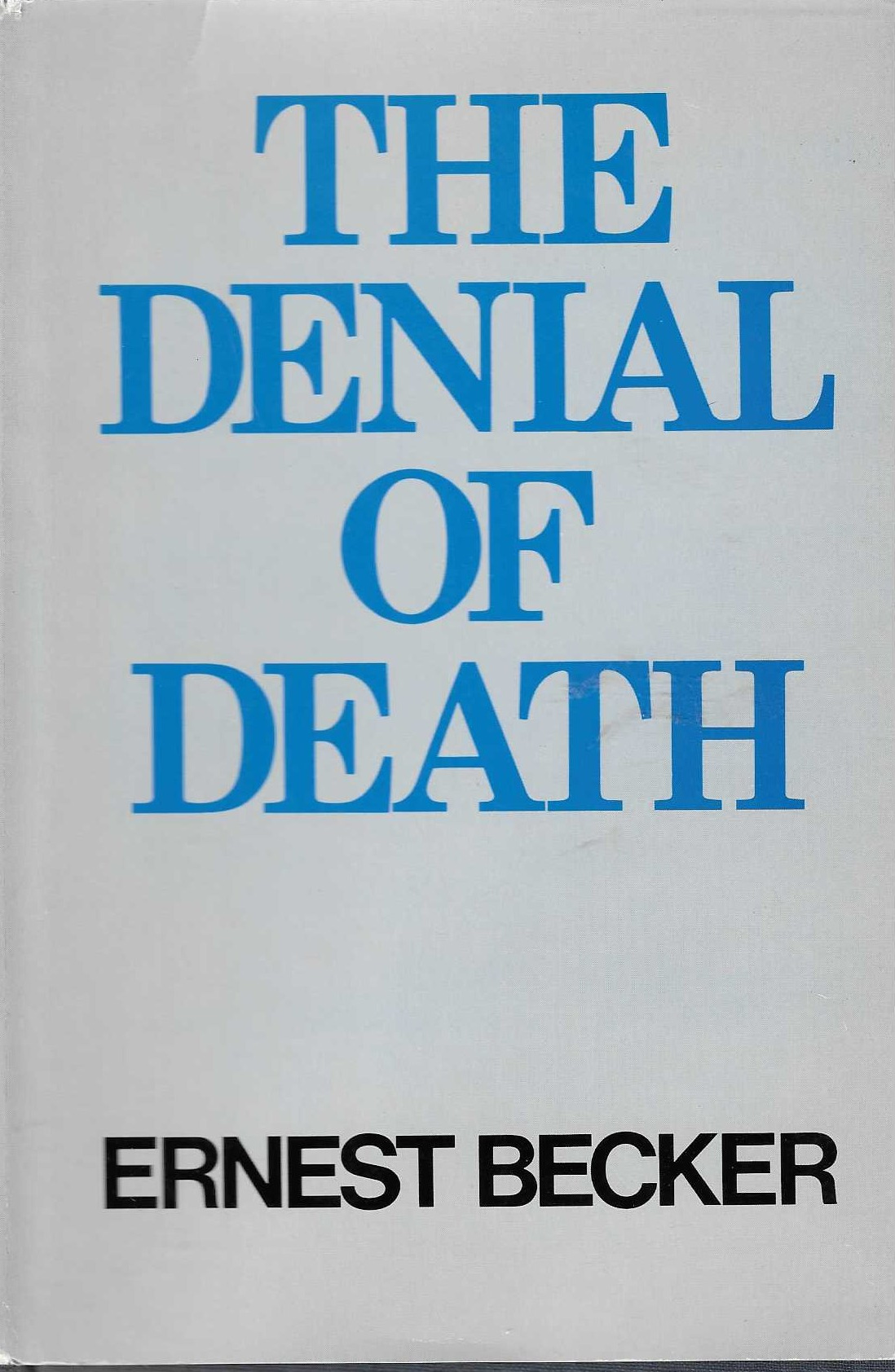Hardcover, 314 pages
English language
Published 1973 by Free Press.

Hardcover, 314 pages
English language
Published 1973 by Free Press.
Man is the only creature who must pass a lifetime with the dear of death haunting even his most sun-filled days. The Denial of Death is an original exploration of the concept that man's innate fear of death is a principal source of his activity. Professor Becker shows how mankind tries to transcend death in culturally standardized ways—through heroism, narcissism, charisma, religion, and even neurosis.
Dealing with the basic dynamics of human nature and with central issues concerning man's nature and his condition in society, the author critically re-examines many of the most widely accepted psychoanalytic theories. He examines the works of Kierkegaard, Rank, and Freud, and the personality of Freud in light of his theory. Professor Becker considers Kierkegaard's role as a psychologist of the human condition, analyzing his central insights into neurosis and madness. And he ventures into the first full-scale confrontation and interpretation of the thought of …
Man is the only creature who must pass a lifetime with the dear of death haunting even his most sun-filled days. The Denial of Death is an original exploration of the concept that man's innate fear of death is a principal source of his activity. Professor Becker shows how mankind tries to transcend death in culturally standardized ways—through heroism, narcissism, charisma, religion, and even neurosis.
Dealing with the basic dynamics of human nature and with central issues concerning man's nature and his condition in society, the author critically re-examines many of the most widely accepted psychoanalytic theories. He examines the works of Kierkegaard, Rank, and Freud, and the personality of Freud in light of his theory. Professor Becker considers Kierkegaard's role as a psychologist of the human condition, analyzing his central insights into neurosis and madness. And he ventures into the first full-scale confrontation and interpretation of the thought of Otto Rank, the important but neglected disciple of Freud.
The author incorporates elements of a number of opposing theories into a larger theoretical structure. He presents a summing-up of psychology after Freud by tying the whole development of psychology back to the still-towering Kierkegaard. He thus argues for a merger of psychology and mythico-religious perspective.
The implications of the ideas presented by Ernest Becker are immense and this is what gives The Denial of Death its real impact and significance. Once we understand that the struggle against death is at the very heart of human life, the way is left open for a truly revolutionary cooperation between religion and science.